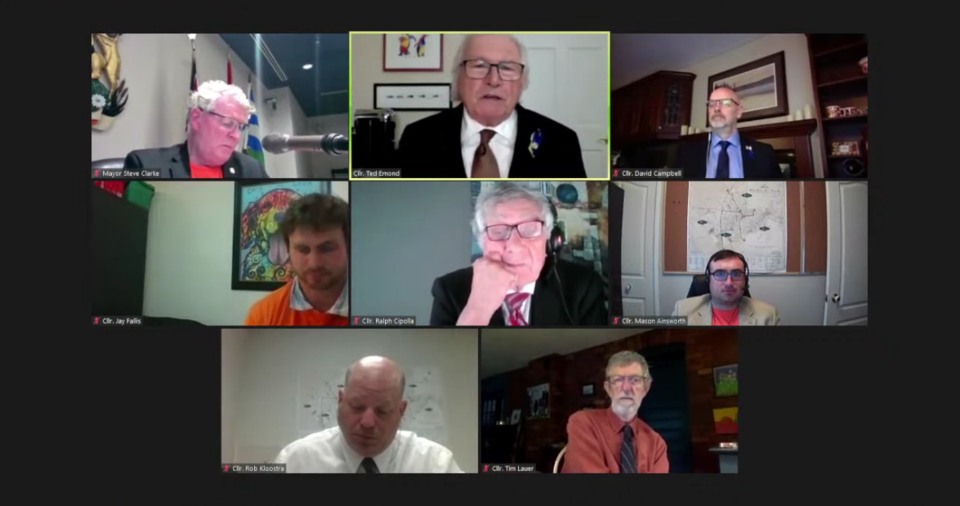City council has approved an amendment to its affordable housing incentives policy geared to ensuring a faster supply of local affordable housing.
Originally postponed from its May 16 meeting, on Monday council decided to change its policy to require affordable housing applications to be proposed only on lands pre-zoned for their intended use.
The change will ensure that city funds contributed to affordable housing do not get tied up in a project that does not have proper zoning, a staff report stated.
“The policy should be focused on incenting projects that are able to serve the affordable housing needs of the community in the most immediate time frame,” the report stated.
“The current ‘first come, first served’ approach used to implement the policy could result in a commitment of funds to one project that is not ready for development (because the zoning does not permit the proposed land use), and the lack of funding availability for another affordable housing project that may be pre-zoned to permit the use,” noted the report.
“This is a minor, but impactful, recommended change to the eligibility criteria for the affordable housing incentives policy, as it will ensure the affordable housing project is viable.”
The policy change will also ensure that proposed developments do not have to navigate through a potentially cumbersome rezoning process before construction can begin.
“The rezoning process involves public consultation and is not a guaranteed approval process,” the report stated. “A rezoning is ultimately approved by council or, if appealed, the Ontario Land Tribunal.”
As of April 29, the affordable housing reserve fund – which was established in 2020 –- held $300,000.
Council members pointed out the reserve is not currently sufficient to fund multiple projects, and that affordable housing developments could be slowed down by the rezoning process.
Through his discussions with the Canada Mortgage and Housing Corporation (CMHC), which provides grant funding to affordable housing projects, Coun. Ted Emond learned projects also receiving municipal funding are often prioritized by CMHC.
“CMHC has no ability to make their grants contingent upon that; that is not something the federal government can do,” Emond said. "However, (they) did point out that they get more requests for funding than there are projects they can fund, and so it only makes sense that if they have multiple projects, those that are financially supported by the municipality would probably take priority.”
Orillia currently has two planned affordable housing projects. One is planned for the Canada Post office at 25 Peter St. N, and the other at the Regent Park United Church property.
“It's clear that, combined, these two projects would like to have financial support from our city, and that financial support could be as much as $1,500,000,” Emond said. “Our affordable housing reserve has less than $400,000, and is being replenished at $100,000 a year.”
Emond stressed that, on top of gearing its policy towards efficiency, finances will be needed to ensure projects move forward.
“Our need for affordable housing is immediate. It's not nine to 10 years in the future, which is what will be required for our affordable housing reserve to fund these two projects, let alone others,” he said. “The reality is that Orillia is experiencing a housing crisis, not just an affordable housing crisis, but a crisis across the full spectrum of income.”
He said that the city has two questions it needs to answer with regards to funding affordable housing.
“Should our municipality more aggressively financially support affordable housing projects?” Emond asked. “If the answer to that is yes, then the second question is how do we fund more (and) aggressively support affordable housing? Those two questions need to be asked and answered, and my point of view is that they need to be answered quickly.”
Coun. Jay Fallis questioned whether council might hold a special meeting to discuss additional funding for affordable housing.
“Discussing more ambitious targets and funding, I think that's certainly something worth exploring, and I think we should be talking about it as early as tomorrow,” he said. “I'm wondering if there's a way … we could convene a meeting in the next month to discuss just this issue, and what are some things that we can do right now.”
Orillia Mayor Steve Clarke said he recognizes the urgency of the situation.
“I'm not sure if today is the time to have that conversation; we're going to stick to (the current policy issue), but I will concur,” responded Clarke. “Any other mayor that I've spoken with in this part of the province, and beyond, has identified housing, at the moment, as the number one issue … (I’m) glad to have those conversations offline and then talk about potential strategy to bring it back to staff or council.”
